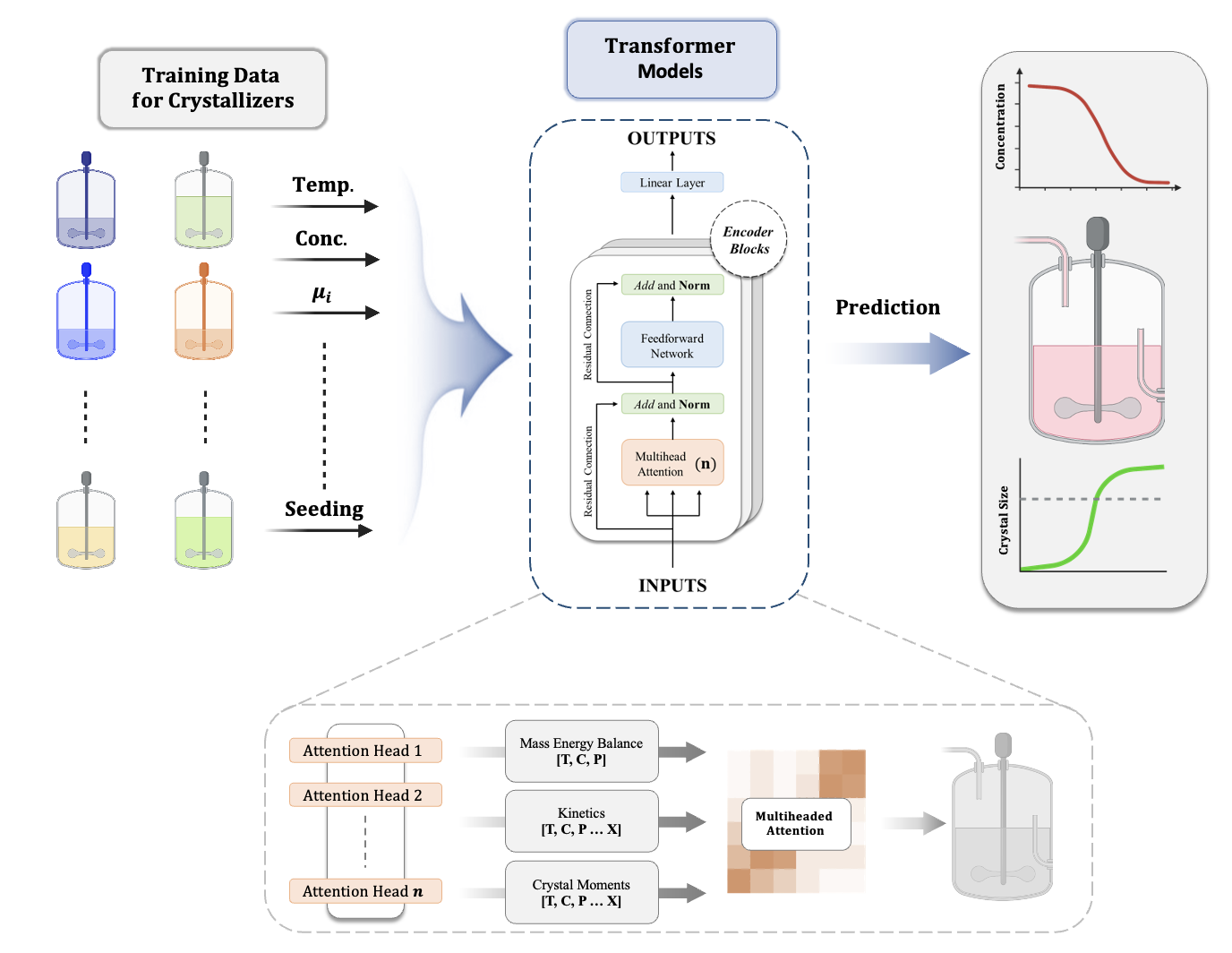
Multiscale Modeling of QD Crystallization: First-of-a-kind high-fidelity multiscale modeling of continuous quantum dot (QD) crystallization was modeled and experimentally validated by combining the microscopic kMC model with macroscopic mass and energy balance equations. Further, a DNN was utilized to mimic the above model to optimize the process conditions of the crystallizer for yielding the desired crystal size.
Time-series-Transformers (TST) for Batch Crystallization: In another case, a novel encoder-based time-series transformer (TST) model was developed and compared with other state-of-the-art (SOTA) ML models (e.g., RNN, LSTM, and CNN) for accurate time-series modeling of batch crystallization of dextrose. Also, the developed TST model was integrated with a model predictive controller (MPC) for setpoint tracking applications.
Transfer learning in Sugar Crystallization using CrystalGPT: That said, although the above-developed models are highly accurate, they are tailored to a specific system and show poor system-to-system (S2S) transferability. To resolve this issue, a novel encoder-decoder TST (i.e., CrystalGPT) was trained and tested to show excellent predictive performance (i.e., 10 times better than LSTM) for a set of 20 unique sugar crystal systems, and an additional unencountered system.
Literature:
Sitapure, N., Epps, R., Abolhasani, M. and Kwon, J.S.I., 2021. Multiscale modeling and optimal operation of millifluidic synthesis of perovskite quantum dots: towards size-controlled continuous manufacturing. Chemical Engineering Journal, 413, p.127905.
Sitapure, N. and Kwon, J.S.I., 2023. Exploring the potential of time-series transformers for process modeling and control in chemical systems: an inevitable paradigm shift?. Chemical Engineering Research and Design, 194, pp.461-477.
Sitapure, N. and Kwon, J.S., 2023. CrystalGPT: Enhancing system-to-system transferability in crystallization prediction and control using time-series-transformers. arXiv preprint arXiv:2306.03099.
